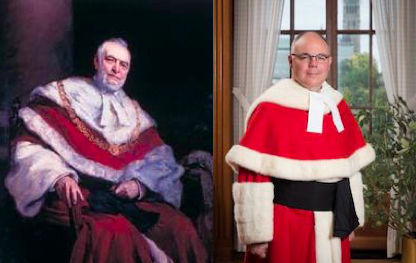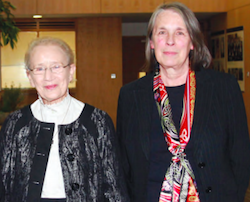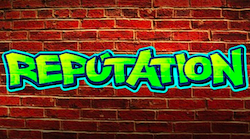Did Christmas come early for NJ commuters who were showered with money last week?
 According to Wikipedia, Betteridge’s law of headlines is an adage that states: “Any headline that ends in a question mark can be answered by the word no”. That is true of the question in the title to this post: no, Christmas did not come early for NJ commuters who were showered with money last week. The CBS headline tells the story: Armored truck spills cash on N.J. highway, drivers rush to grab dollars and crashes ensue. Of the more than $500,000 that spilled on to the highway, nearly $300,000 remains missing, and the bank and the police want it back. As with overactive ATMs, these flying dollars are not so many early Christmas presents, the bank is entitled to recover them, and retaining them may very well amount to theft. …
According to Wikipedia, Betteridge’s law of headlines is an adage that states: “Any headline that ends in a question mark can be answered by the word no”. That is true of the question in the title to this post: no, Christmas did not come early for NJ commuters who were showered with money last week. The CBS headline tells the story: Armored truck spills cash on N.J. highway, drivers rush to grab dollars and crashes ensue. Of the more than $500,000 that spilled on to the highway, nearly $300,000 remains missing, and the bank and the police want it back. As with overactive ATMs, these flying dollars are not so many early Christmas presents, the bank is entitled to recover them, and retaining them may very well amount to theft. …




 How can tort law account for the harm of defamation? One answer to this question is to argue that our reputation is or is like property. While this analogy may make sense to tort law theorists, particularly those seeking to give an internal account of tort law, it may not make sense to property theorists. In addition, it is not clear whether this approach fits with the case law. Whether or not thinking about reputation as property makes sense raises the question of whether tort law theory understands property differently than property theory does. It also raises the question of whether the theory of the tort of defamation fits the case law. In what ways does it make sense to think about reputation as property, and in what ways does it not?
How can tort law account for the harm of defamation? One answer to this question is to argue that our reputation is or is like property. While this analogy may make sense to tort law theorists, particularly those seeking to give an internal account of tort law, it may not make sense to property theorists. In addition, it is not clear whether this approach fits with the case law. Whether or not thinking about reputation as property makes sense raises the question of whether tort law theory understands property differently than property theory does. It also raises the question of whether the theory of the tort of defamation fits the case law. In what ways does it make sense to think about reputation as property, and in what ways does it not?